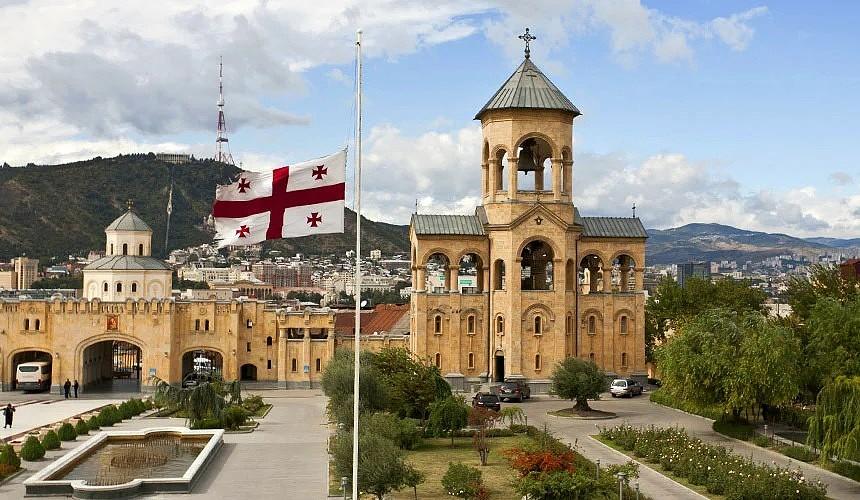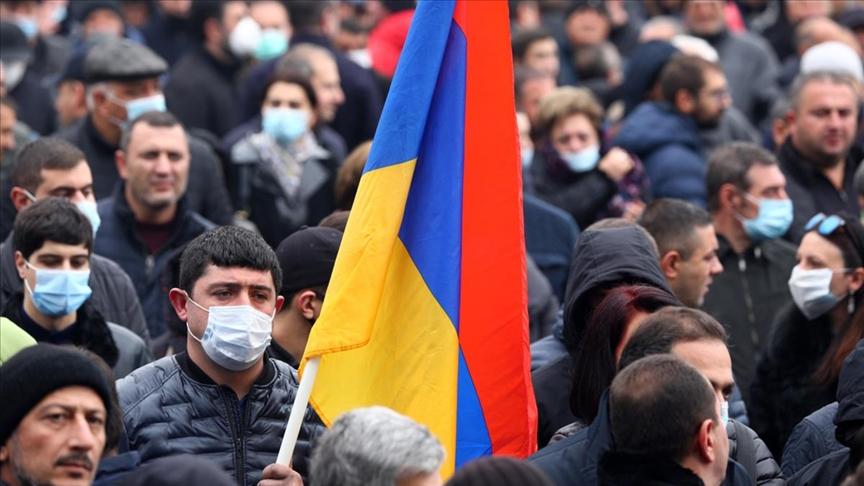"If Russia defeats Ukraine, post-Soviet countries will find themselves in a different reality" David Osepashvili for Caliber.Az
Georgian politician, political analyst, and expert on public relations and media Davit Osepashvili answers key questions of Caliber.Az on the geopolitical situation in South Caucasus.
- What do you think about the European Parliament resolution imposing personal sanctions against Bidzina Ivanishvili "for ties with the Kremlin"?
- On the one hand, this is a serious resolution, which means a certain signal to the Georgian government and Ivanishvili himself, since they are very close. Ivanishvili himself believes that he is on the sanctions lists unofficially because he won a case related to a Swiss bank.
However, Ivanishvili will be sued for the second time by the Swiss bank Credit Suisse. PR-company "Cision" on his behalf said the billionaire had suffered considerable financial losses because the bank had delayed transactions in the Green Vals trust fund, which was established to protect the interests of beneficiaries.
- Simultaneously with the resolution mentioning Ivanishvili, the European Parliament called on Georgian authorities to release former President Mikheil Saakashvili from jail on humanitarian grounds so that he could receive proper treatment abroad. Will your authorities take such a step?
- I think they won't because this is a very big problem for the Georgian authorities. The electorate, which supports the current government, has an extremely negative attitude towards the previous Georgian government. If Russia wins the war with Ukraine, the post-Soviet countries will find themselves in a very different reality. It is time for the Georgian government to decide on a course - either it is with the West or with Russia. It seems to me that it has already made this choice. Ivanishvili has very close ties with the Russian elite, in particular with businessmen...

- In the near future, the G7 heads of state and government will gather in the Alps to address a number of topical issues. Do you think they will make a decision on the applications of Georgia, Moldova, and Ukraine to join the EU?
- I think they won't. Europe has very strict criteria. Georgia will not get this status. This is a kind of a message for Georgia to start turning vector from the West to the North. Criticism of the West towards our government is growing day by day. When Europe really wants something, it does not ratchet up its rhetoric. All this leads to a vectorial shift, just a matter of time...
- Is normalization of the Georgian-Ukrainian relations possible and under what conditions?
- At the moment it is impossible. There are very harsh comments at the level of rhetoric between Zelenskyy's team and our government.
- At what level are Tbilisi's relations with Baku and Ankara today?
- I think these are the best relations between the countries at the regional level. Our relations are mutually beneficial and should, in my opinion, become an example for other regional states. It would be good if Baku and Yerevan had a similar relationship. Given the years of enmity, it is difficult, but through the efforts of several states, it can be overcome, provided that the territorial integrity of Azerbaijan is fully restored and Armenia's interests are respected. This conflict is a matter of time, and it will be resolved.

- The opposition rallies in Armenia, led by Kocharian and Sargsyan, are closely linked to Moscow. The opposition comes up with revanchist ideas. Do you think the Armenian opposition has a chance of restoring its power in the country and a new war with Azerbaijan?
- I do not think that there will be a new war with Azerbaijan. The Azerbaijani army showed top-notch performance during the 44-day war, so I don't think Yerevan will risk a new escalation. Armenia cannot expect to win, especially since Russia will not interfere in its problems. Moscow will always play a balanced game, and this will be the best option for Baku.
As for the opposition, these are internal problems - if the Kremlin wanted regime change in Armenia, it would have happened long ago. Pashinyan is not a direct Kremlin protégé, but he has good relations with Russia, and he will not create problems for it. But no matter who is in power, from now on, Armenia's policy will be built on a pragmatic level.
It's very good that Armenia is improving its relations with Ankara, and the countries are engaged in dialogue.








